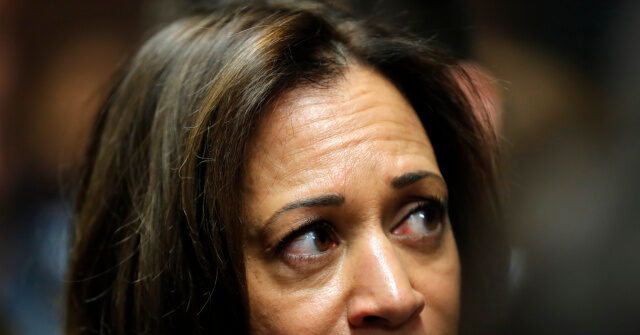Brian Pannebecker, the founder of Auto Workers for Trump, recently expressed grave concerns regarding the future of the U.S. auto industry should Vice President Kamala Harris ascend to the presidency. Appearing on Newsmax TV’s “America Right Now,” he characterized a potential Harris presidency as posing an “existential threat” to the automotive sector. Pannebecker contested the rationale behind union leadership’s support for Harris, suggesting that their motivations stem from a desire to enrich “corrupt union bosses.” He emphasized a clear disconnect between the rank-and-file workers on the shop floor and the decisions of union leaders, indicating that these leaders prioritize their interests over those of the actual workers they represent.
Drawing from his extensive 36-year career in the auto industry, including significant tenures at Chrysler and Ford, Pannebecker reported firsthand insights from the workers he engages with weekly during rallies outside auto plants. He asserted that the sentiment among those employees is overwhelmingly pro-Trump, with a reported support level ranging from 65 to 70%. This statistic underlines a fundamental belief among many auto workers that their industry’s leadership, composed of elite figures, has strayed from the needs and opinions of the workforce. This disconnect, according to Pannebecker, clouds critical judgment pertaining to industry-wide challenges while complicating navigation through the turbulent landscape of American politics.
Pannebecker projected that Kamala Harris’s presidency could destabilize the auto industry and jeopardize workers’ livelihoods. This assertion underscores a broader fear that decisions made at higher political levels without a grassroots understanding might adversely affect production, union negotiations, job security, and industry growth. He depicted the current political climate as a battle over influence, where union executives might act against the sentiments of their memberships by solidifying ties with political figures whom they believe offer more lucrative alliances. The ongoing tension between working-class realities and political maneuvering within union leadership stands as a pivotal theme in Pannebecker’s commentary.
Moreover, critical discussions within the automotive sector point to a glaring conflict between the interests of union leadership and their constituents, which causes disenchantment among members feeling misrepresented. The complexities of labor negotiations, economic pressures, and evolving industry landscapes create ripe conditions for dissent among the rank and file. With concerns over electric vehicle production and other emerging technologies impacting job security and traditional auto manufacturing paradigms, workers are conscious that the decisions made today may definitively shape their futures in the industry.
Pannebecker’s assertion reflects a larger narrative around the significance of worker agency within unions. He contends that a worker-driven philosophy should prevail over elite-focused decision-making that overlooks the voices of those most affected by industry changes. As a modicum of resistance, Pannebecker and likeminded constituents pose challenges to traditional union leadership, asserting their own perspectives regarding political affiliations and industry policies. Such dynamics are particularly pronounced as the automotive industry grapples with technological shifts and evolving labor demands.
In conclusion, Pannebecker warns that the stakes in the upcoming election are higher than mere political preference; they are about preserving the integrity of an industry that has long been a cornerstone of American manufacturing and a source of livelihood for countless families. His remarks serve as a rallying cry for workers in the automotive industry, emphasizing the importance of aligning political support with actual workforce sentiments. In his view, the future sustainability of the auto sector is contingent on electing leaders who truly understand and advocate for the interests of workers, rather than those who merely benefit from a system that often disregards their needs.

